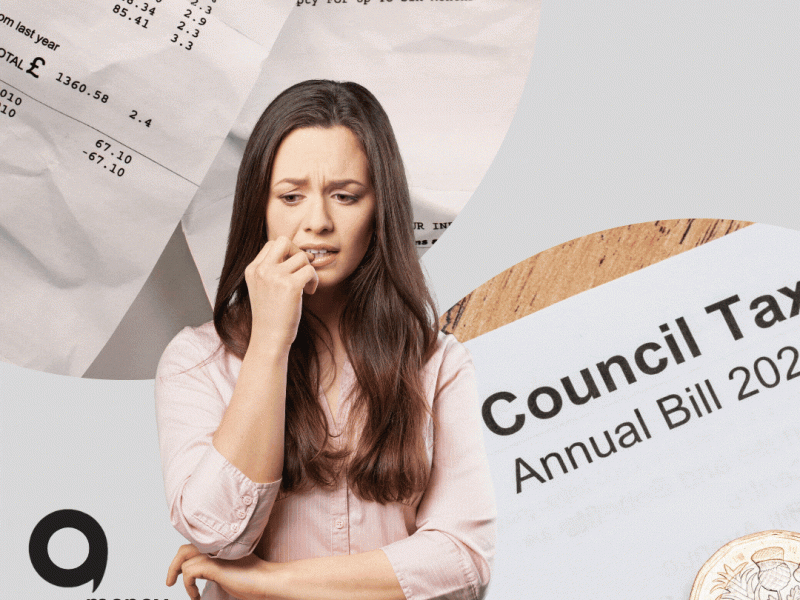
The purse strings are a lot tighter now than they were at this time last year. From increases at the tills, to skyrocketing bills, we are all feeling the pinch.
With increased living costs, comes the potential for us to fall behind, looking at short-term solutions to long-term problems, such as credit and store cards, potentially falling into a cycle of robbing Peter to pay Paul.
There is no “one-size-fits-all” when it comes to working out our finances. It’s important to consider your current situation, and face things head-on – which isn’t always easy.
moneyadvice.scot advisers are here to work with you to assess your current situation, and find a practical way forward that meets your needs as an individual.
They will assess your income, use the Advice Direct Scotland Benefits Calculator to check your entitlement to any benefits, and work with you to find a solution.
It’s important to understand the key terms when it comes to debt and getting our finances in order. Gathering information, including statements and letters from creditors (the people we owe money to) can help us to find a positive way forward.
Priority Debts
Gas & Electricity
Falling behind with utility suppliers (Electricity, Gas, and other household fuel) can happen like any other bill. When this happens, the energy company can take several potential courses of action against you for payment, including the installation of a prepayment meter and instructing debt collectors to pursue you for any money owed.
If you are struggling to pay, there are certain things you can do, such as negotiate with your current supplier before any action goes ahead. There are also other sources of support out there including grant funding and supplier hardship funds that may be able to help with existing energy debt, and future costs.
Most energy suppliers want to resolve any issues as much as you do and are aware that they are likely to be more successful in pursuit of a debt if they can get your co-operation. Sometimes negotiating openly with them can be the best course of action.
Some energy providers have measures in place to help customers in financial difficulty get their energy arrears under control. These measures are usually available to recipients of certain benefits, those on low income and to special circumstances, such as those who have had a reduction in household income due to illness.
energyadvice.scot can provide advice and information on a range of energy-related matters, including billing; meters; energy grants and financial support; and communicating with energy suppliers.
For more information, you can visit the Knowledge Centre at energyadvice.scot, or call one of our specialist energy advisers on 0808 196 8660 (Monday to Friday, 9am – 5pm).
Mortgages
Sometimes discussing arrears with our mortgage lenders when we’ve fallen behind can be beneficial. It is costly for the lender to pursue debts that you owe through courts and legal proceedings, and ultimately may cost you more in the long – term.
By discussing concerns openly and honestly, you may be able to get things back on track easier than you think.
If your mortgage lender has started proceedings to repossess your home, then there are several options available to you which could provide helpful in an awkward and difficult time. If this has not yet begun, there are still ways of dealing with this before the situation escalates any further.
moneyadvice.scot advisers can work with you to assess your situation, and work out a proactive way forward.
Council Tax
Local authorities can use Sheriff Officers to enforce wage and bank arrestment through court orders for unpaid council tax bills.
Sheriff Officers are officers of the Court in Scotland and act on behalf of various parties in enforcing court orders.
If you have received written confirmation that your local authority are taking / are about to take action against you, moneyadvice.scot can help. We can negotiate with local authority (or Sheriff Officers) to work out a potential way forward, and to help reduce or stop the amount of contact you receive from them whilst we look for a solution.
Rent
In yesterday’s article, we looked at the different areas of support that advice.scot can provide in terms of rent arrears and the process for eviction.
If you are struggling with rent payments, and have built up arrears as a result, it is important to deal with these issues head on and avoid burying your head in the sand.
If you do not make sufficient payments towards clearing your rent arrears, your landlord will have the right to try to evict you. They cannot however just throw you out of your home or change the locks.
The correct legal procedures must be followed for an eviction to be deemed ‘legal’, and this depends on the type of tenancy you have and differs depending on who you rent your home from (e.g., social housing / council / private landlords).
For more information on rent arrears and eviction rights, you can visit the ‘Housing’ section of the advice.scot Knowledge Centre.
Specialist moneyadvice.scot debt advisers can also work with you to see how to proceed with rent arrears.
Non-Priority Debts
There are other debts which can be considered non-priority debts, but none-the-less require our attention –
- Credit & Store Cards
- Hire Purchase
- Bank & Building society debts (Personal Loans / Overdrafts)
- Catalogues
- Personal debts to friends and family
Creditors can end an agreement with you due to non-payment and can take legal action against you to make you pay what you owe.
For forced repayment to take place, the lender must have applied to the court for a decree for enforcement action to be taken.
This can include wage and / or bank arrestment, forced sale or property & assets and result in forced bankruptcy and even go as far as imprisonment. It is always beneficial to get things under control as soon as possible to avoid any collection or enforcement activity.
Debt Solutions
Informal measures can be sought out to try and help pay off your debts.
These measures include –
- Consolidation loans
- Token payments
- Full and Final Settlement
There are other more formal arrangements that can also help, but care should be taken before entering a formal debt solution, and the relevant advice sought.
Formal debt solutions include –
- Debt Arrangement Schemes (DAS)
- Debt Management Plans (DMP)
- Trust Deeds
- Sequestration
- Minimal Asset Process (MAP)
Sometimes, just talking things through with someone can be a positive first step.
moneyadvice.scot provide free information and support on a wide range of debt-related issues and are authorised and regulated by the Financial Conduct Authority (FCA).
Our specialist debt advisers can work with you to assess your current situation, look at your income and outgoings, and consider what to do next.
Approximately half a million people across Scotland are not claiming the financial support they are entitled to. You don’t have to be one of them. We’re here to help.
For more information on the help available, including the various potential debt solutions, visit the moneyadvice.scot website.



